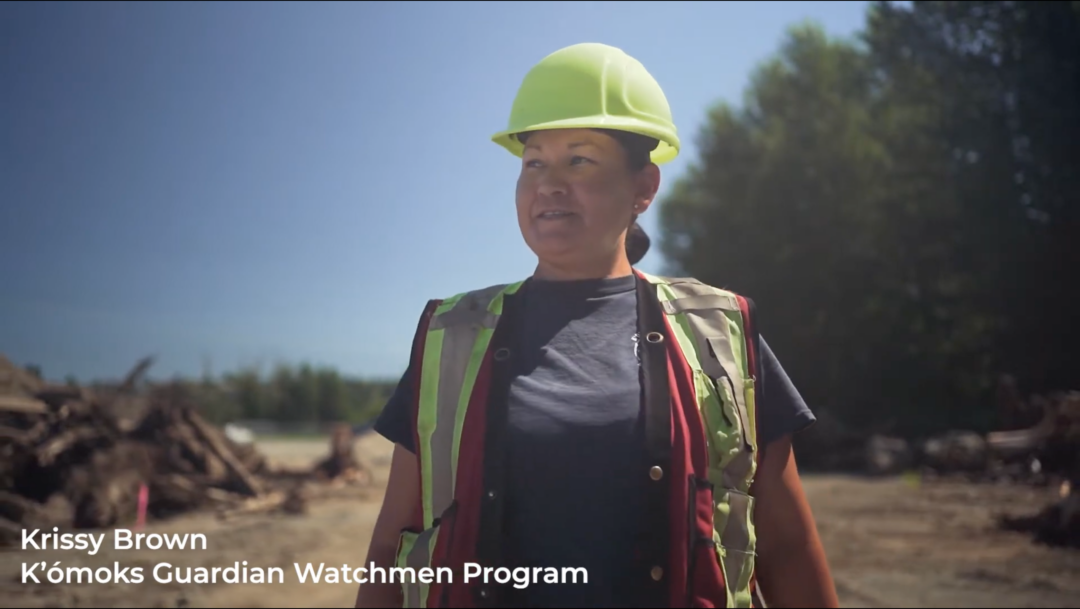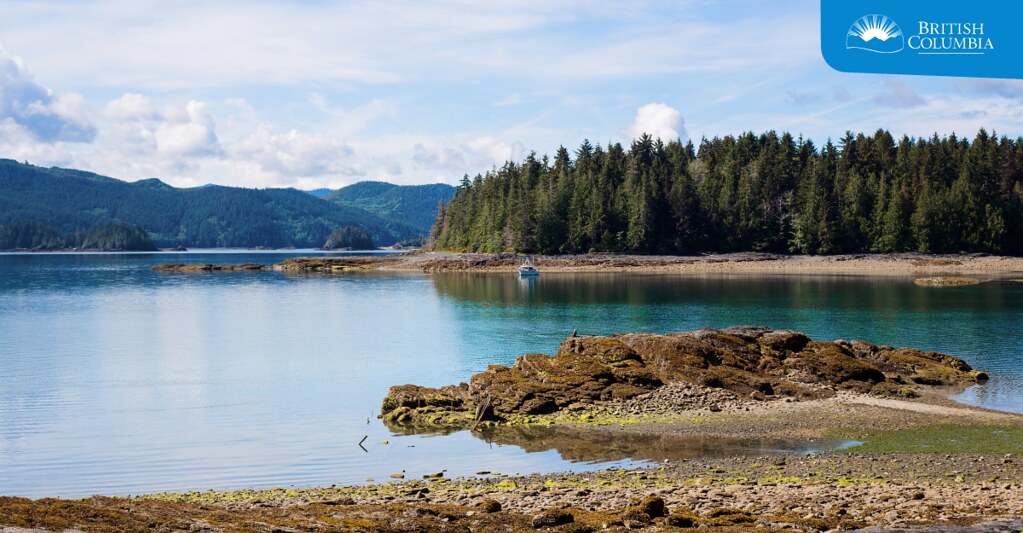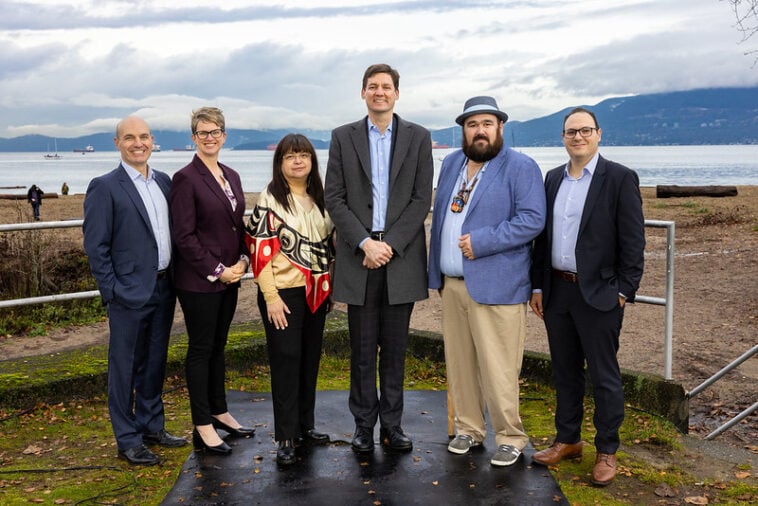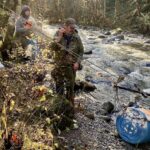The provincial government has just announced $60 million in new funding for Indigenous-led stewardship of the Great Bear Sea. Premier David Eby; Resource Stewardship Minister Nathan Cullen; Indigenous leaders Dallas Smith, president of the Na̲nwak̲olas Council; and K̓áwáziɫ Marilyn Slett, president of Coastal First Nations Great Bear Initiative and Chief Councillor of the Heiltsuk Tribal Council, gathered on Tuesday, December 5th to share the landmark news.
“It’s a great opportunity to be here today, to look at a future that will bring 2,000 full-time jobs in the marine environment and bring forward an MPA strategy endorsed by the province of British Columbia, the government of Canada, and coastal First Nations.”
Dallas Smith
The Great Bear Sea, or the Northern Bioshelf Region, stretches from northern Vancouver Island to the Alaskan border, including Haida Gwaii and the central coast. The area is often called the “Galapagos of the North” because of its distinct and rich biodiversity, including whales, salmon, seabirds, shellfish, eelgrass meadows, and kelp forests. The initiative builds off the traditional knowledge and marine stewardship practised in the region by Indigenous peoples for millennia.
The grant will support Indigenous marine stewardship and Guardian programs, as well as the recently announced Marine Protected Area (MPA) Network Action Plan, which will culminate in the creation of the Great Bear Sea MPA Network. The funds will be administered by the Coast Conservation Endowment Fund Foundation (or Coast Funds) with the aim of creating thousands of new jobs, fostering economic sustainability, and supporting biodiversity and healthy ecosystems.

“It’s a great opportunity to be here today, to look at a future that will bring 2,000 full-time jobs in the marine environment and bring forward an MPA strategy endorsed by the province of British Columbia, the government of Canada, and coastal First Nations,” Smith stated.
The BC government says it intends for the grant to attract an additional investment of $200 million in the Great Bear Sea Project Finance for Permanence (PFP) initiative. A PFP combines public funds with private investment to ensure long-term sustainability while boosting the economy.
“BC’s world-leading, collaborative approach will protect our precious marine areas and grow a sustainable economy with good jobs building on work that BC, First Nations, and Canada have undertaken together over many years,” said Nathan Cullen, Minister of Water, Land and Resource Stewardship, in a statement.

“In the Great Bear Rainforest and Haida Gwaii, First Nations have demonstrated how investments in stewardship and coastal communities create jobs and opportunities while protecting the ecosystems we all rely on.”
Eddy Adra, CEO of Coast Funds
Coast Funds, the world’s first Indigenous-led conservation finance organization, oversaw the success of the Great Bear Rainforest and Haida Gwaii conservation project. The Great Bear Sea project will look to the Great Bear Rainforest as the model for sustainable finance, in which Coastal Funds took BC’s original $30-million grant in 2007 and produced a four-to-one return on investment while protecting 6.4 million hectares of old-growth forest.
It also delivered $109.2 million towards 439 stewardship and economic development projects and created 1253 new permanent jobs. First Nations of the Great Bear Rainforest and Haida Gwaii were further able to take Coast Funds’ investment and leverage an additional $296.8 million towards stewardship, businesses, and community infrastructure.
“In the Great Bear Rainforest and Haida Gwaii, First Nations have demonstrated how investments in stewardship and coastal communities create jobs and opportunities while protecting the ecosystems we all rely on,” commented Eddy Adra, CEO of Coast Funds. He stated he was pleased to see renewed support “to extend protections and conservation financing to their marine territories.”
“By protecting whole ecosystems that include people and communities in co-existence with natural ecosystems, Indigenous-led stewardship provides a blueprint for conservation and sustainable resource management worldwide.”
K̓áwáziɫ Marilyn Slett
Earlier this year, the BC and federal governments, alongside a coalition of fifteen First Nations, announced a landmark agreement to create the Great Bear Sea Marine Protected Area Network. The declaration covers nearly 30,500 square kilometres and will protect increasingly under-threat fish-producing habitats while allowing ongoing fishing in most areas.
“By protecting whole ecosystems that include people and communities in co-existence with natural ecosystems, Indigenous-led stewardship provides a blueprint for conservation and sustainable resource management worldwide,” Slett remarked in the press release for the Great Bear Sea PFP.
This announcement comes on the heels of new polling research that found 93% of British Columbians view marine conservation as the top priority for the future of the BC coastal economy.




